Lessons in Partnership: Wolf Trap Institute in Kenya
September 23, 2024 | Wolf Trap Education
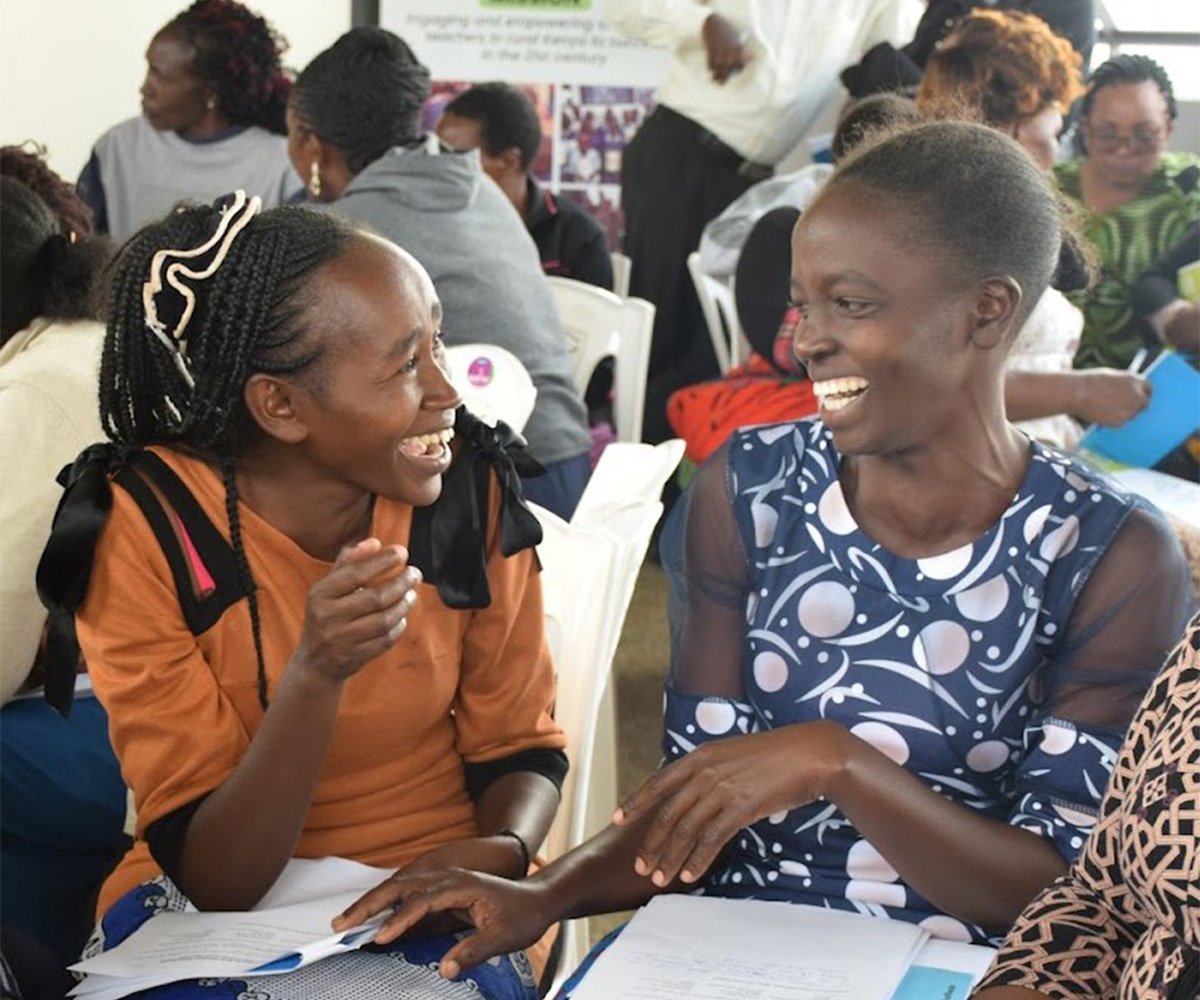
“Pole pole, pole pole; go slow, go slow. Pole pole, pole pole; that’s where the animals go!” Young students in Wamunyu, Kenya, joyfully sang along with Wolf Trap Master Teaching Artist Christina Farrell. Situated in a modest rural classroom, this vibrant scene was part of a transformative two-week training program by the Wolf Trap Institute for Early Learning Through the Arts, made possible by the generous support of the Gupta Family Foundation.
Margaret and Shashi Gupta’s extraordinary support of Wolf Trap’s education programs began in 2013, and has grown significantly over time. Margaret remarks, “I was struck by the extent to which children, even shy ones, were drawn out of their shells and engaged in the class activities. Later, I saw data that clearly showed a marked improvement in these children’s academic performance because of the infusion of art into their learning.”
In 2015 and 2017 this interest led to a series of two-week professional development programs in India by Wolf Trap Master Teaching Artists, sponsored by the Gupta Family Foundation.
Margaret shared, “I could see how this approach could lift underprivileged children out of poverty by allowing them to compete more equally. This aligned perfectly with the Gupta Family Foundation (GFF) mission of enabling individuals disadvantaged in some way—physical, economic, mental, societal, etc.—to become self-reliant.”
This year, the Gupta Family Foundation provided a grant to support Wolf Trap’s program services for one of its grantee organizations, Kenya Connect.
Activities
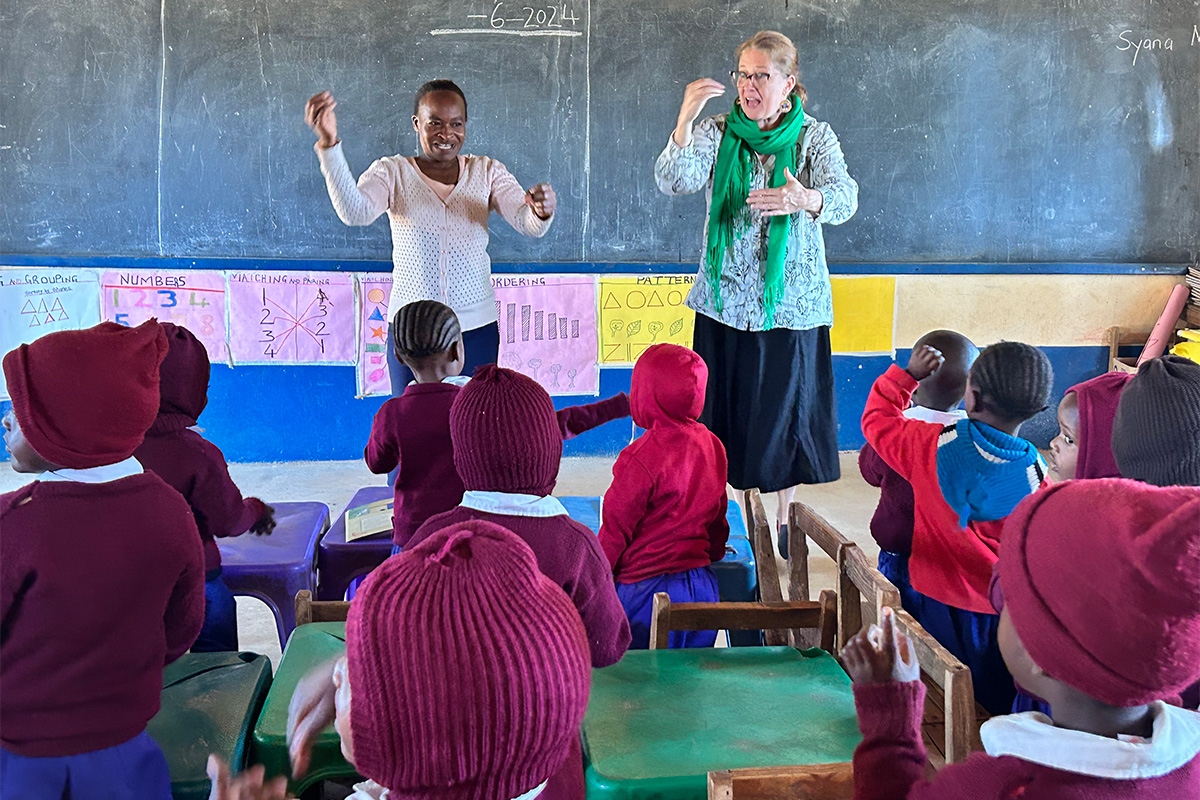
Wolf Trap Master Teaching Artist Christina Farrell works alongside teachers from Kisinzini and Kambiti Primary Schools to pass on arts integration strategies during a classroom residency sponsored by Kenya Connect.
Wolf Trap aimed to support Kenya Connect’s mission of engaging and empowering students and teachers in rural Kenya by specifically providing support to early childhood educators and families.
Christina Farrell, Wolf Trap Master Teaching Artist led two family workshops, two professional development workshops with teachers, and three multi-day classroom residencies in Kisinzini and Kambiti Primary Schools. The goal of the interactions was to teach educators how to incorporate the arts into their daily practice and give families the tools to extend their child’s learning at home.
These programs impacted 383 educators, parents/caregivers, and young children.
Reception and Impact
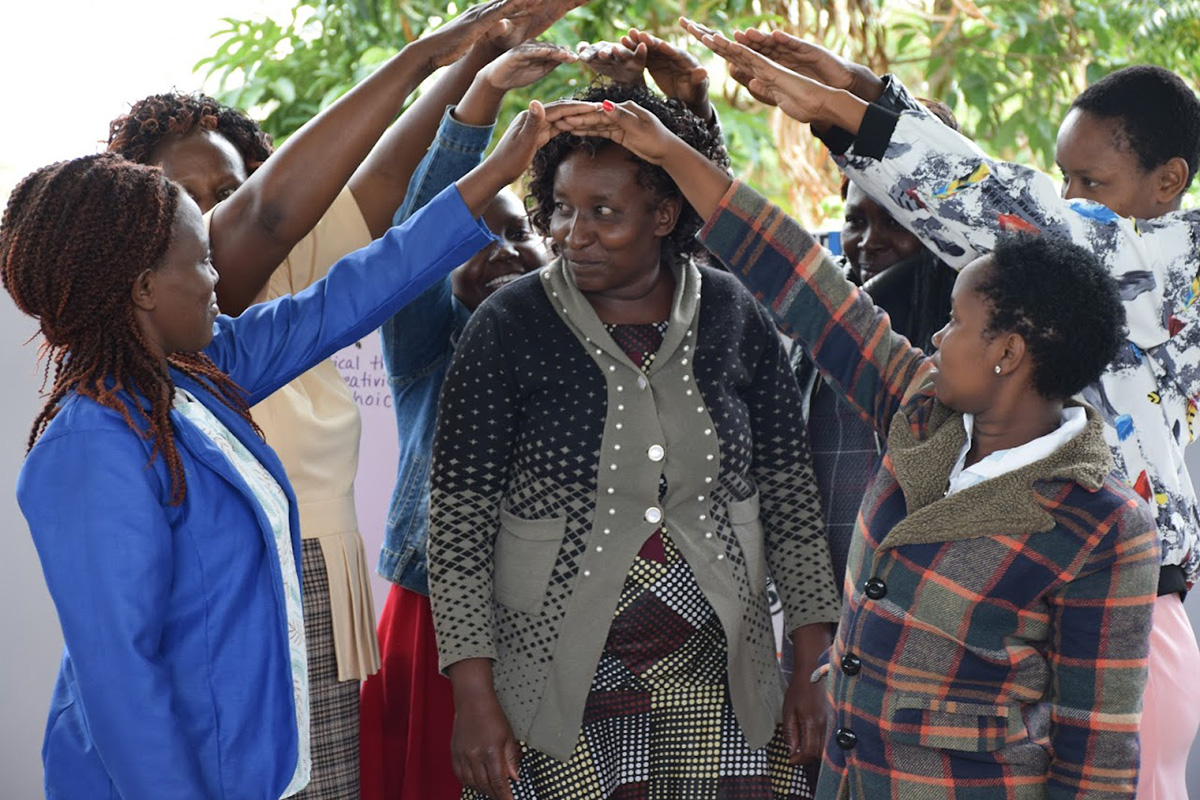
Kenyan early educators participate in arts-based energizer at Wolf Trap’s professional development workshops, sponsored by Kenya Connect.
Rebecca Migwambo, a professional development coordinator and collaborator with Kenya Connect, accompanied Farrell during the workshops and immediately saw the impact on the educators in attendance: “It was rewarding to witness the joy of the teachers anytime they used a strategy effectively as modelled by the teaching artist.”
Teachers then led arts experiences promoting steady beat, rhythm, inner hearing, and language fluency in their classrooms as demonstrated by Farrell and even devised their own creative ways to implement the strategies. They appreciated the practical, hands-on approach and felt more confident using arts integration in their classrooms. The early childhood teachers were pleased to have strategies tailored to the unique needs of three- to five-year-old children and were eager to implement those strategies in their classrooms.
After the two days of professional development workshops, teachers felt more confident in their abilities to integrate music and drama into literacy. These sessions provided opportunities to apply creativity and critical thinking to their lessons, and demonstrated how targeted hands-on training positively impacts their teaching.
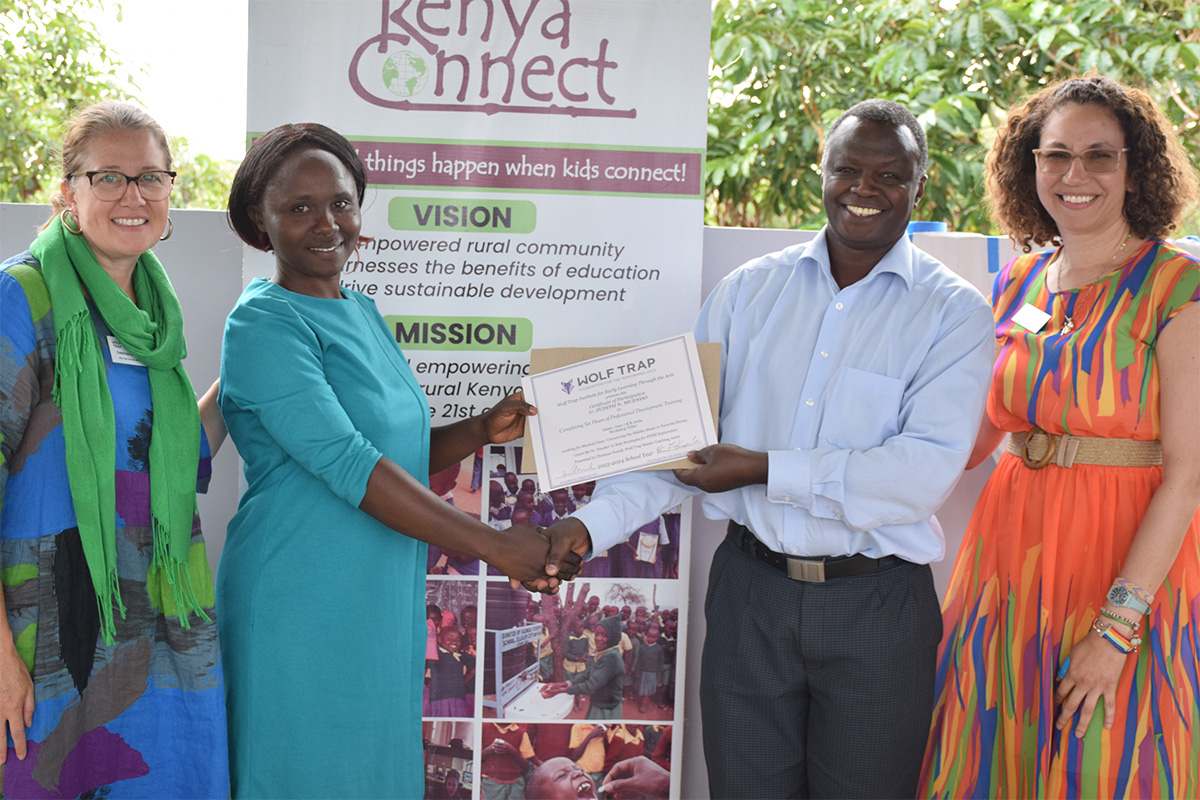
Wolf Trap Master Teaching Artist Christina Farrell, Wolf Trap Early Childhood Specialist Luisa Alives, and James Musyoka, Executive Director of Kenya Connect present certificate of completion to workshop participant Judith Muendo.
When Farrell led the first classroom lessons with the children, Teacher Eunice had already spent the morning eagerly trying new strategies she had learned in the professional development workshops over the weekend. She met her at the door with a big smile and proclaimed, “I’m so happy!” She had found objects to set up a dramatic play “market” for the children to pretend to buy and sell goods together. Her enthusiasm was contagious!
Farrell remarked, “These exchanges are the highlights of my Wolf Trap work—the teachers’ existing skills and talents are celebrated while new approaches are being explored.
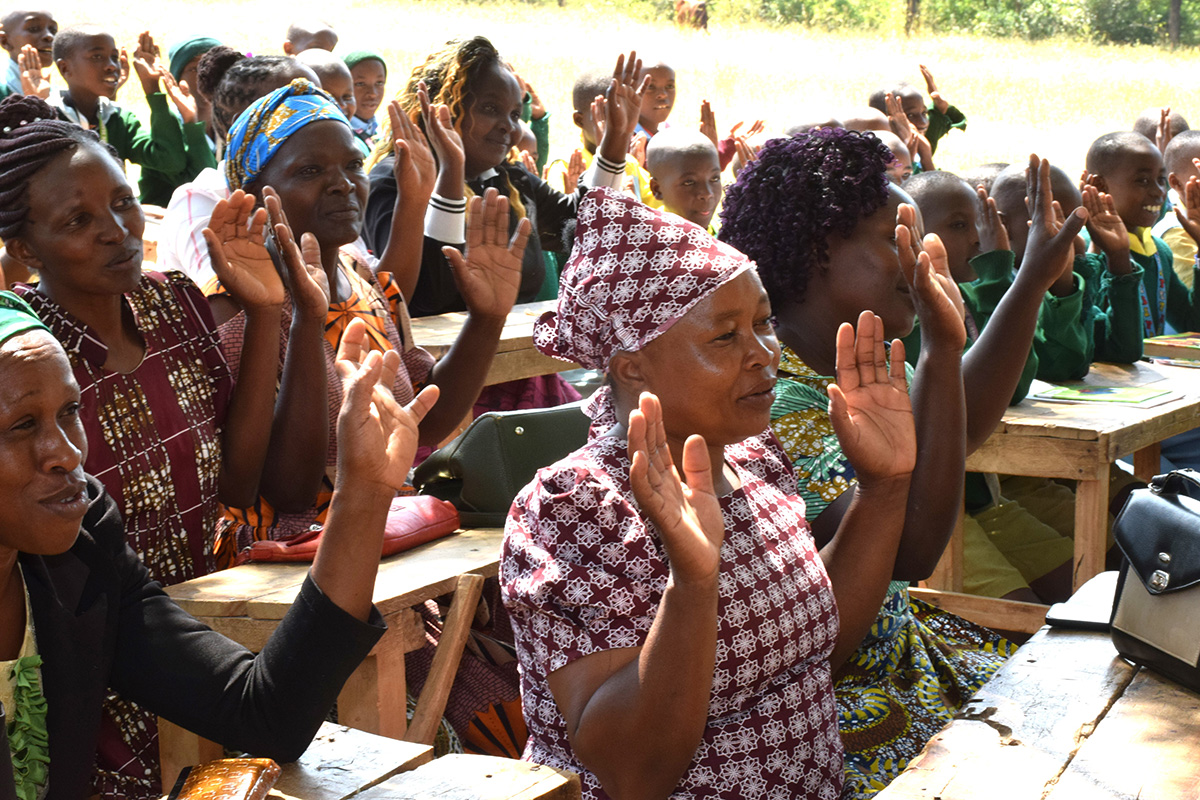
Early educators from Kisinzini and Kambiti Primary Schools participate in Wolf Trap professional development workshops in Kenya.
There was an immediate response from the students. For instance, the students were interested in the math lesson that used the “Ni Tuthi Soko” (“Let Us Go to the Market”) song to learn number values. They were teaching each other, and learning was fun for everyone.
Florence Kilile, a teacher at Kambiti Primary School, shared how using the air flute for transitions between activities, experiences, or locations excited her learners. She could see learners quickly stand up or sit when the flute was blown. In Teacher Catherine’s class, rhythmic instruments such as egg shakers helped her to assess number recognition easily and formatively among her learners.
The Art of Relevance
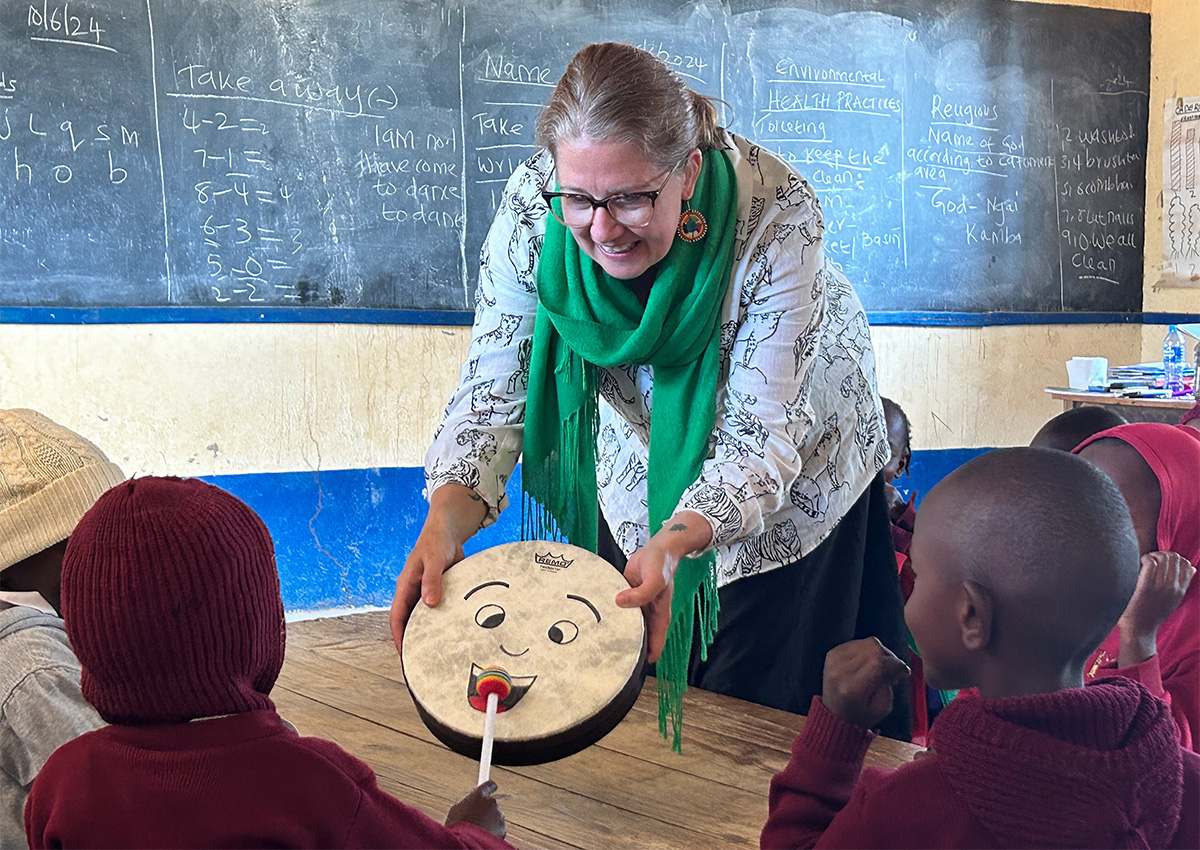
Wolf Trap Master Teaching Artist Christina Farrell presents one of her signature arts strategies, “Mr. Drum,” during her classroom residency at Kisinzini and Kambiti Primary Schools, sponsored by Kenya Connect.
Farrell designed and co-created parts of the program with the teachers to align with the Kenyan curriculum and the cultural values and aspirations of the Kamba community. She incorporated Kamba words in the songs used for learning, for example, “Kithembe, Kithembe, where are you...” instead of “Mr. Drum, Mr. Drum, where are you?” (Kithembe is a drum from the Kamba community.) She also used the book Mama Panya’s Pancakes; A Village Tale from Kenya as the focus story to learn literacy and math.
Teacher Florence shared, “I am very grateful to Christina for providing the cards with the lyrics and guiding questions in Kikamba and English” (the local language in Wamunyu is primarily Kikamba). This approach made learning more relevant and engaging for the students and fostered a deeper appreciation for the cultural heritage.
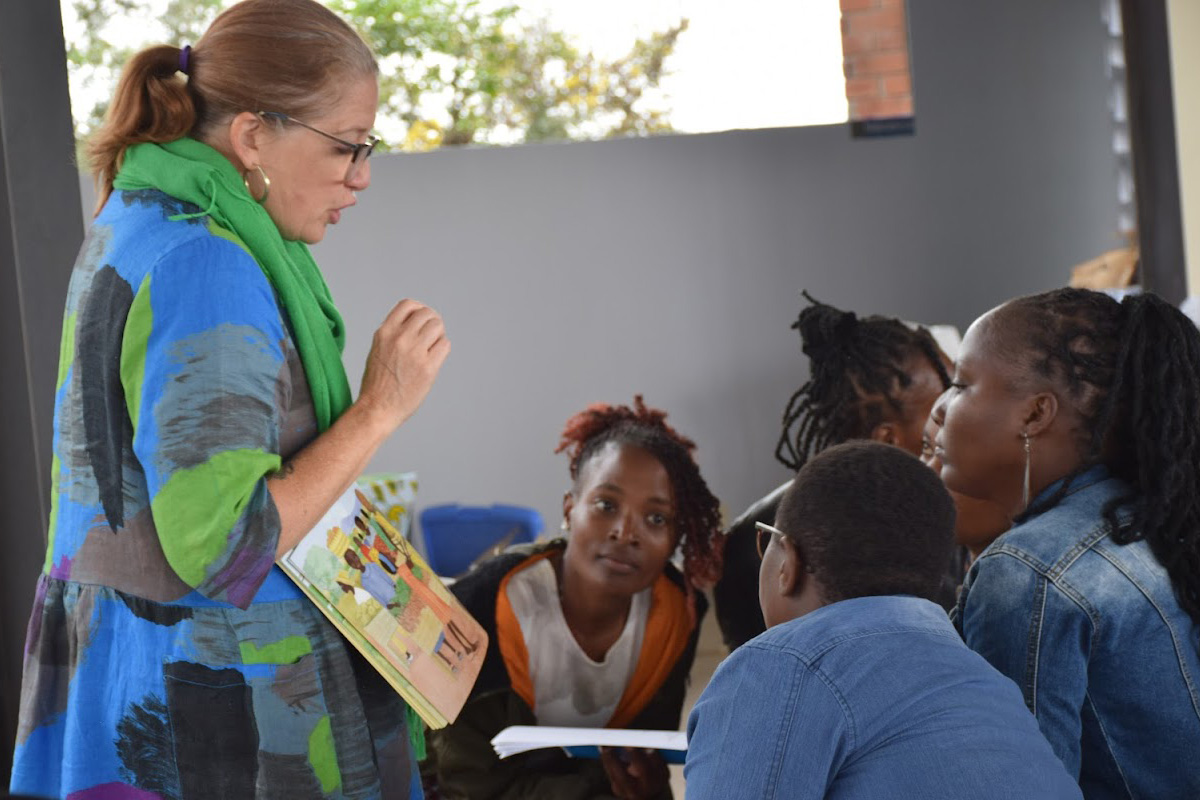
Wolf Trap Master Teaching Artist Christina Farrell shares ideas for how to use children’s books as inspiration for arts-integrated techniques in their classrooms.
Pulling Together
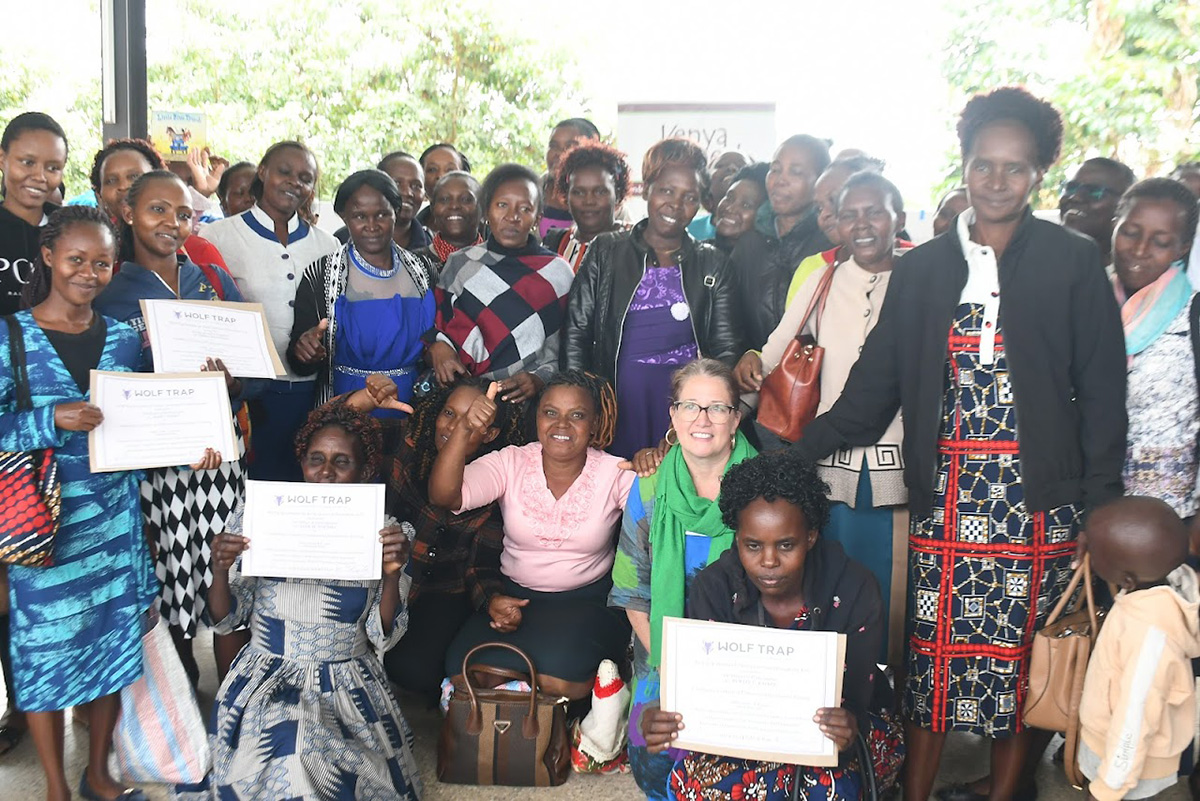
Wolf Trap Master Teaching Artist Christina Farrell celebrates the conclusion of two professional development workshops in Kenya, providing arts integration strategies to 80 local early childhood educators.
Kenya’s national motto is “Harambee,” which means “pulling together.” Kenya Connect embodied this spirit of cooperation and collaboration throughout the project by relying on staff who helped to plan, drive, document, entertain in song and dance, teach, and translate.
In addition to the work in the classroom and its direct impact on educators and parents, a stakeholder meeting arranged by Kenya Connect invited additional community members—including local artisans, business owners, and healthcare workers—to learn about Wolf Trap, Kenya Connect, and arts integration.
Wolf Trap is honored to partner with visionary donors like the Gupta Family Foundation and dedicated organizations like Kenya Connect to share arts integration techniques with teachers, enhance learning, and create a lasting impact across the world.
Learn more about Wolf Trap Institute for Early Learning through the Arts and its impact on students and families locally and worldwide.